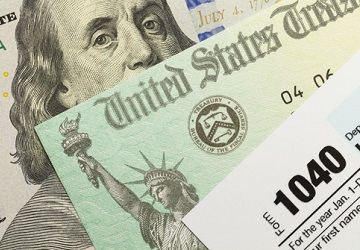Trying to Lower Your Tax Bill? These 4 Deductions Might Help
Lowering your tax bill as a small business owner means finding and taking advantage of all the hidden opportunities to save that are provided by the United States tax code.

Dentists, it’s that time of year again — tax season. The holidays are over and you’re ready to face the New Year with new business goals in place to help your practice succeed. Part of your success needs to include your strategy for dealing with the IRS. If you have a plan in place, you can be sure to maximize your deductions and reduce the amount you might owe.
Lowering your tax bill as a small business owner means finding and taking advantage of all the hidden opportunities to save that are provided by the United States tax code. Missing these opportunities can cost you thousands of dollars, but there’s hope. Check out this list of deductions you can take to cut down your tax bill in April.
1. Retirement Accounts
Many dentists don’t realize how much money they can save on taxes by squirreling away money into retirement accounts. There are several retirement accounts you can contribute to, each with different tax implications.
Individual retirement accounts (IRAs) allow you to contribute a specific amount of money each year toward your retirement. In 2016, the amount was $5,500 for anyone under the age of 50. If you have a traditional IRA, you can deduct the amount you contributed during the tax year you made those contributions. This does make your retirement distribution taxable when you decide to take it.
Conversely, if you contribute money to a Roth IRA, you’re essentially putting “after-tax” dollars into your retirement. This means that contributions made to a Roth IRA are not taxable when you take a distribution. There is a limit to the amount of money you can contribute to Roth IRA, which is based on your income. However, it might be possible to invest in a “backdoor” Roth IRA — in this scenario, you put money into a traditional IRA and then roll it over into a Roth IRA. You should check with a CPA in your state to see if this strategy could work for you.
Additionally, if you contribute to a 401(k) plan, you should be sure you’re contributing enough money each year. For 2016, the maximum amount of cash you could put into this type of account was $18,000 — you can then roll your money into either a traditional or Roth IRA. However, you need to be aware of the 10 percent penalty you’ll face if you choose to withdraw funds from your 401(k) early. Most 401(k) plans don’t let you withdraw funds until you’re at least 59.5 years old.
2. Business Expenses
It might seem obvious, but many dentists miss out on tax deductions associated with running a business simply because they don’t realize what’s deductible and what isn’t. There are a surprising number of things you can deduct from your taxes as long as they are expenses that occur in the course of doing business. For instance, if you travel often, you can deduct travel expenses like flights or car rentals, meals, and accommodations. Office supplies, dental equipment purchases, communications expenses, and licensing or board exam fees can all be written off. Expenses associated with taking continuing education courses can be tax deductible as well. If you own your business, you can probably take many deductions like this. Even paying the employer portion of your own payroll taxes is deductible!
3. Health Insurance and Health Savings Accounts (HSAs)
It’s no secret that paying for health insurance can be very, very expensive. As a self-employed dentist, you can write off your health insurance premiums as a business expense incurred throughout the year. Many dentists choose to fully fund a HSA as a way to use tax-free money to pay for healthcare-related expenses before you’ve met your deductible. HSA contributions are deducted from your total gross income, and you don’t have to itemize this expense. Any earnings on an HSA are also tax-free.
Contributions to a HSA are tax deductible, but you do have to meet certain requirements to be able to deposit funds into one of these accounts. Your health insurance plan must be a qualified high deductible plan, and you can’t have any additional health care coverage. You also can’t be a dependent or be enrolled in any type of Medicare program.
4. Charity Donations
Dentists tend to be charitable people. For tax purposes, any donations you make to qualified charities are deductible. If you donate large items to a charity, like a car or a boat, you can probably deduct that too. Even smaller donations, like bags of used clothing, can be written off if you keep track of the value of the items you’re donating. Further, the miles you put on your car driving to and from charity events can be deducted, as can any other expenses you incur while donating your time and efforts to the charity of your choice.
ACTIVA BioACTIVE Bulk Flow Marks Pulpdent’s First Major Product Release in 4 Years
December 12th 2024Next-generation bulk-fill dental restorative raises the standard of care for bulk-fill procedures by providing natural remineralization support, while also overcoming current bulk-fill limitations.